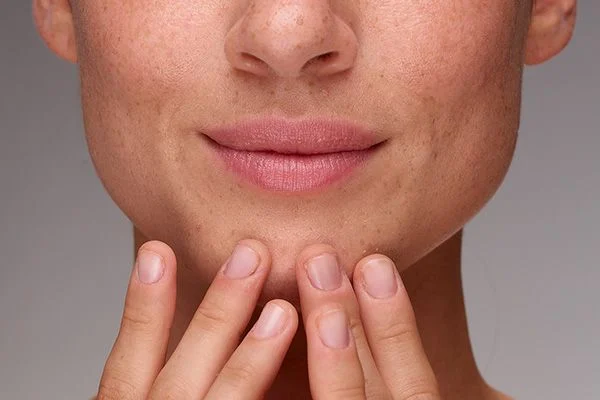Bacteria. Just hearing the word makes you want to scrub it all off. This is because microscopic organisms are usually associated with the image of being dirty, but that’s wrong. They are essential for good health and beautiful skin.
From a very young age, we have been taught how important it is to wash our bodies, smell good, and “clean ourselves”. However, that idea of absolute purity is an illusion. There are about 100 trillion microorganisms in the human body, including tens of billions of bacteria, microbes, fungi, and viruses. We have so many bacteria that we have more bacteria than cells. These microscopic organisms are inside our bodies, not only in our internal organs but also in our skin. Before you panic: skin flora is an absolute must. There is no beautiful, healthy skin without bacteria!
Microbiota: The Fingerprint of the Skin
There is no need to be afraid of certain types of bacteria. Microorganisms of all kinds are part of the human body, and many are completely harmless. From the time we are born, we are given a “skin microbiota” that stays with us until we die and that microbiota consist of 70% of essential bacteria that are same in all human bodies. The remaining 30% are bacteria unique to your body and can be associated with your age, genes, and environmental factors. They form your fingerprint, your signature, etc. For example, if you analyze the skin flora of a newborn baby, you can immediately tell whether it was born by natural birth or by C-section. Bacteria can also tell us about a person’s lifestyle, diet, and even whether or not they have pets. A healthy person lives in harmony with the bacteria in and on their body. The microbiota is constantly interacting with the immune system. It even reinforces it, and we should eliminate such bacteria.
Are We Doing it Wrong?
It has been said for years that beautiful skin is clean, clear, and pure. So, we adopted the beauty regimen of our Asian sisters:
-Washing our face morning and night
-Cleaning our skin
-Exfoliating two to three times a week
But what if it does more harm than good?
Washing your skin repeatedly and over-exfoliating shows that you don’t know the physiological functions of the skin. It is a complex organ, a veritable ‘ecosystem’ that produces substances that nourish the flora. On the contrary, skin flora also has substances that are useful for skin protection and health. The two cannot live independently and are in a precarious balance that aggressive behaviors or products should not disrupt.
Washing our body and face multiple times a day is more for social rules than for our health. On the contrary, the skin’s barrier function may be compromised, and the acid balance may be disrupted in the long run. This will cause problems where there were no problems, to begin with. Skin out of microbial balance will quickly become inflamed and will not know how to protect itself from harmful external influences.

Personal Products
Can’t you wash your face and body? Of course, but it’s okay to slow down a bit. Some dermatologists recommend taking fewer showers or washing only the areas where you are concerned about odor. The use of an adapted shower gel is also recommended. In any case, you must remove your makeup and wash your face thoroughly at night so that no makeup residue or impurities remain on your skin to clog your pores or create blemishes. In the morning, just wipe your face with a cotton ball containing a small amount of water or flower lotion. Exfoliation should be done once a week, using a fine-grained product to avoid damaging the skin.
As more and more research are being done on the microbiome, more and more cosmetic companies are showing interest in it. For instance, Dove has already launched products that respect the skin’s flora years ago. The brand’s shower gels do not contain sulfate detergents or foaming agents and have a neutral pH that does not alter the skin’s natural acidity. In other words, it is non-aggressive, gently cleanses, and does not strip all lipids from the skin. In the same way, you should try to find products that maintain the balance of the skin’s microbiome.


